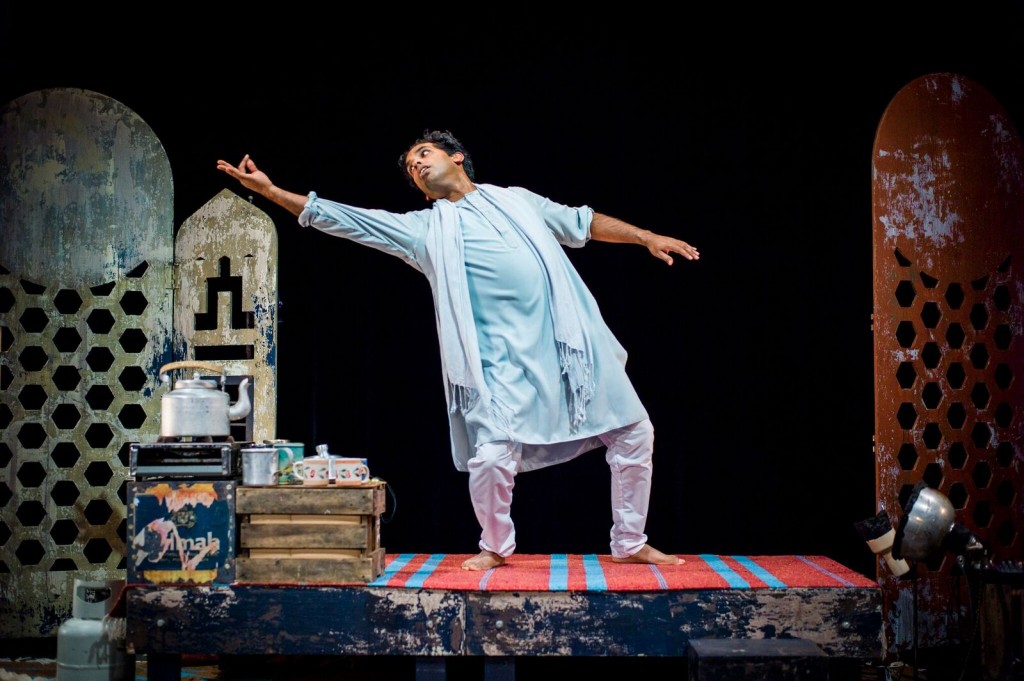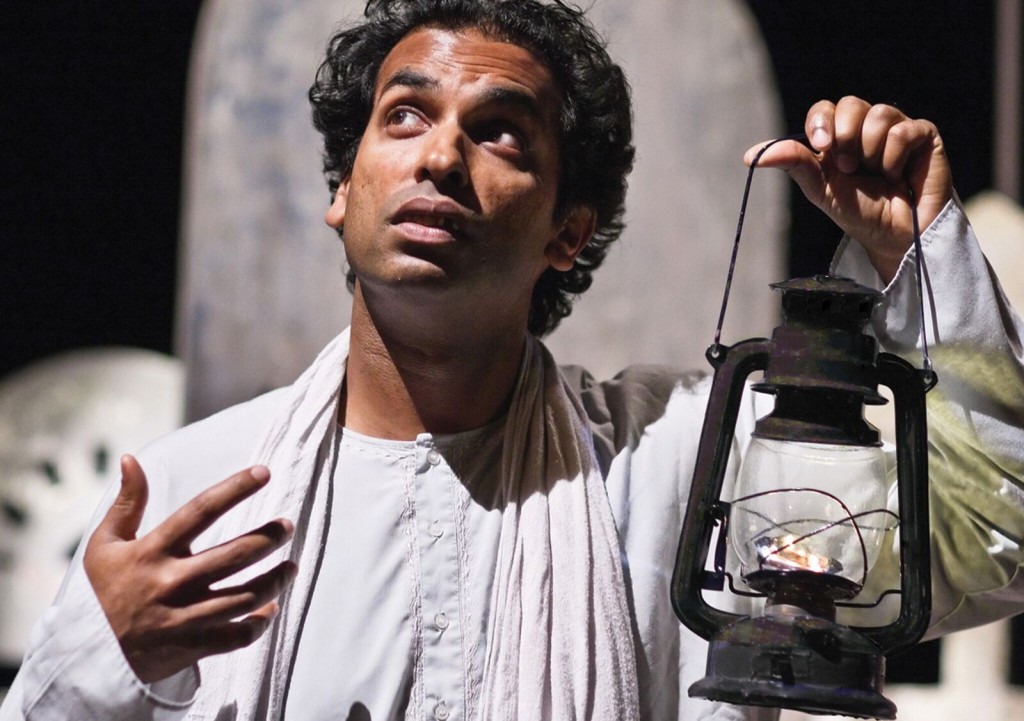
At The Cultch until November 5, 2016
604-251-1363/thecultch.com
Posted November 3, 2016
I knew from reading the press release that Jacob Rajan (Indian Ink Theatre Company) would play seventeen characters in The Elephant Wrestler. What I didn’t count on was the gorgeous, evocative music that accompanied his eighty-minute solo performance. Between composer David Ward, musician Adam Ogle and performer Rajan, The Elephant Wrestler succeeds in fulfilling the company’s goal: “We want the experience to leave an indelible imprint on your hearts. That’s why we’re called Indian Ink.” And although the company is based in New Zealand, the piece evokes the heat, the smells, the hustle and bustle and the noise of a busy train station in southern India.
Rajan, begins as Kutisar – the hard-working, buck-toothed, Bangalore chai-wallah (tea seller) – who tells the story of beautiful Bulna, one of seven sisters who turn up at the train station where he makes and sells tea. The girls’ mother is dead and their father has abandoned them, leaving them destitute. When Kutisar hears how beautifully Bulna and her sisters sing, he encourages them to sing for train travellers’ spare change. Money quickly fills the hat; Bulna and her sisters are happy but then Fakir, the local gang lord attempts to take all their earnings. Stepping in is Punchkin, the local policeman, who is suddenly there to protect the girls and who banishes – however briefly – Fakir. Punchkin, also known as the Elephant Wrestler, falls in love with Bulna but his love is unrequited. The story unwinds from there.
Based partly on an old Indian folktale called Punchkin, The Elephant Wrestler touches on caste, corruption, poverty and love both romantic and maternal, selfish and selfless. It comments on Western obsessions – like coffee and iPhones – that have worked their way into Indian society and that exist somewhat awkwardly in a country still bound by old traditions, old myths, old gods and new technology.

Presented by The Cultch and Diwali Fest, it’s a good story told by a master storyteller.
Mysterious and sad as the story is, Rajan, as Kutisar, punches it up with humour and bits of homespun philosophy. Wondering whether their father will return, Kutisar says it’s doubtful; a man with seven unmarried daughters is not likely to come back from wherever he has fled. And although Kutisar does not favour marriage with a Muslim, he concedes, “These Muslims do a good biryani.”
Rajan’s transitions from Kutisar and Punchkin to Bulna and her six sisters are seamless, obvious and inventive. As Bulna who is both shy and feisty, Rajan is particularly good: a coy stance with face slightly obscured by a shawl, he/she speaks softly, mellifluously. And when Bulna finally finds love – long after her sisters have all married – Rajan makes that moment worth a thousand words: Bulna’s hands, crossed over her heart suddenly burst like a winged bird and take flight: a lovely, poetic image of those first flutterings of love.
At the beginning of The Elephant Wrestler, Rajan tells us, “Tonight all your problems will be gone.” Without apology, he confesses at the end that he has not banished all our problems but he leaves us with these words of wisdom: “Your life is a cup. Make of it what you will.”
Charismatic, more than a little mischievous and definitely engaging, Rajan brings a warm and sunny taste of southern India to dark, rain soaked Vancouver. And, oh, the music.

